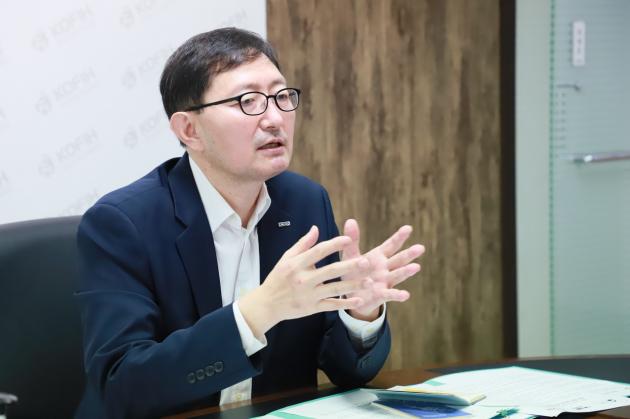Korea Foundation for International Healthcare (KOFIH), a state agency that has globally promoted the “K-Quarantine” model amid the Covid-19 crisis, said it would help developing nations bolster primary care.
“The basics of disease control and prevention are enhancing primary care, and KOFIH will go in that direction,” KOFIH President Choo Moo-jin said in an interview with Korea Biomedical Review. “Global cooperation and solidarity have become a mission of the current era.”

With Covid-19 hitting the entire globe seriously, KOFIH collected requests from Southeast Asia and Africa and sent medical resources to eight countries -- Laos, Cambodia, Myanmar, Uzbekistan, Ghana, Uganda, Tanzania, and Ethiopia, according to Choo. The materials included diagnostic kits, personal protection gears, and portable digital X-rays.
To prevent infectious diseases in the eight countries' local communities, the agency also provided training for drinking water management and personal hygiene, he said.
Choo said after many nations asked tips for the Korean model of the Covid-19 control and prevention, KOFIH formed a Task Force for International Quarantine Cooperation with the Ministry of Foreign Affairs and the Ministry of Health and Welfare in May.
KOFIH also agreed with the National Medical Center to jointly develop a program for K-quarantine education, he added.
“Experts advised that the most important thing for disease control and prevention was to strengthen primary care. So, we want to follow that advice,” Choo said.
As Covid-19 does not end in one region or country but affects the entire world, KOFIH will make efforts to help establish a sound healthcare system to control and prevent infectious diseases in developing countries effectively, he said.
To do so, KOFIH needs to increase overseas offices and enhance their capabilities, Choo said.
He said the agency would add offices in Vietnam and Sri Lanka to the current eight offices in Southeast Asia and Africa. With increased capabilities, 10 offices will play their sufficient roles to fight Covid-19, he added.
Choo also decided to add an education program for infectious disease management to the Lee Jong-wook Fellowship. The fellowship program aims to nurture healthcare professionals in developing countries, in memory of the late Lee Jong-wook, the Korean doctor who served as secretary-general of the World Health Organization.
He hoped that KOFIH’s work could become more professional and advanced. The Lee Jong-wook Fellowship has shown the identity of the foundation so far, and KOFIH wants to do a new medical facility integration business, he said.
The new business will include a hospital establishment and operation and education for human resources. “We have formed a task force for medical facility integration, and we’re now assessing possibilities. In the future, it will be KOFIH’s flagship business,” he said.
However, even if KOFIH makes a training program for infectious disease management, it does not have a site to provide the education systematically, Choo noted.
The agency is sending the education program to each site overseas and providing local training.
However, the Covid-19 revealed the necessity for a place where such education can be offered systematically, Choo said, adding that he hoped to establish a center for training healthcare workers at KOFIH.

